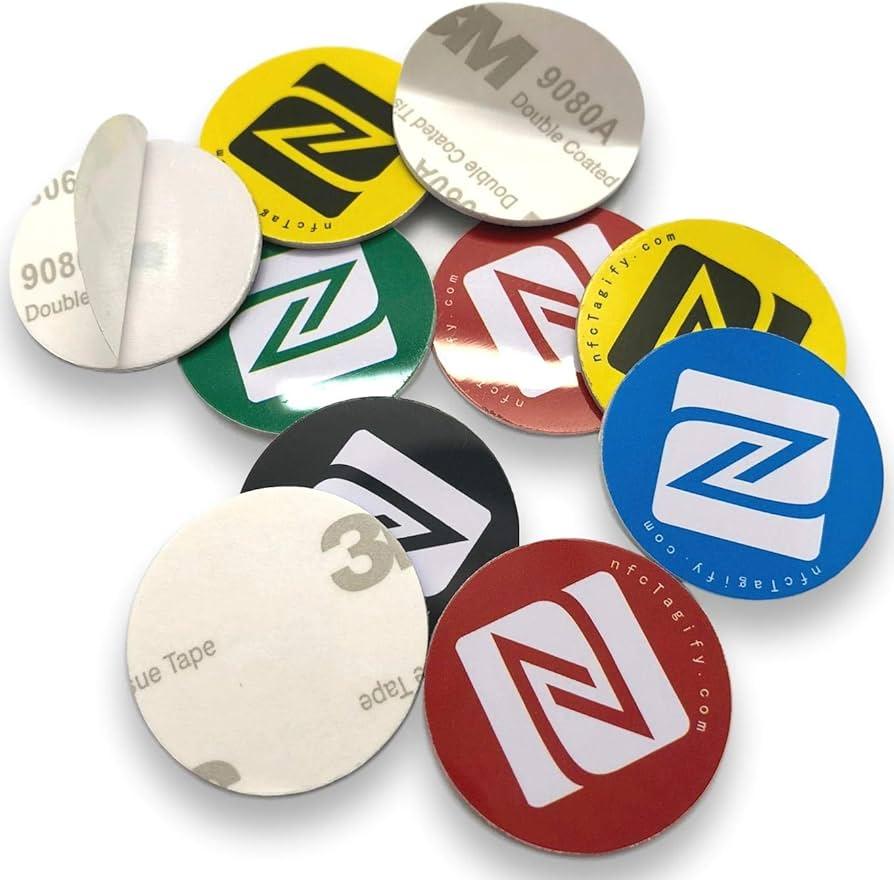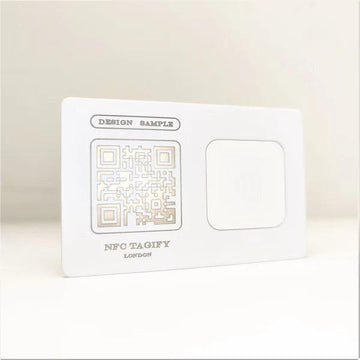Everything You Should Know About On Metal NFC Tags

Contents
On Metal NFC Tags are a ground breaking solution in the realm of contactless communication, overcoming the challenges posed by metallic surfaces. This article delves deeper into the technology, types, and various applications of On Metal NFC Tags, along with the extensive offerings from NFC Tagify.

Understanding NFC Technology: NFC (Near Field Communication), a subset of RFID (Radio Frequency Identification) technology, facilitates swift and contactless communication between devices, enabling applications like digital business cards and more.
The Challenge with Metal Surfaces: Metal surfaces have long been a hurdle for traditional NFC tags, as they tend to interfere with the electromagnetic fields essential for communication between the tag and reader. This interference often leads to failed readings or complete signal blockage.
The Innovation of On Metal NFC Tags: On Metal NFC Tags are engineered with a special protective layer or ferrite shield that isolates them from the metal interference, ensuring the smooth operation of the embedded NFC chip.
Technological Backbone of On Metal NFC Tags: The core of these tags lies in their design and the NFC chips they house. The protective layer ensures the electromagnetic fields remain undisturbed, allowing the NFC chip to function optimally.
Types of NFC Chips for On Metal Tags: Various NFC chips are suited for On Metal Tags, including:
- NTAG 216: Ideal for customised digital business cards due to its ample storage capacity.
- MIFARE DESFire: Known for its robust security features, making it suitable for access control applications.

Exploring Applications of On Metal NFC Tags: The versatility of On Metal NFC Tags allows for a broad spectrum of applications:
- Inventory Management: Efficiently track metallic assets in warehouses or during transit.
- Access Control: Enhance security in areas with metallic doors or gates.
- Information Sharing: Embed them in metal business cards or promotional materials for effortless sharing.
- Payment Systems: On metal NFC tags can be utilized in payment terminals, providing a contactless payment solution in a metal-dominated setting.
- Asset Identification: They can be used for identifying metallic assets in various industries, aiding in asset management and maintenance.
How to Choose On Metal NFC Tags: When selecting On Metal NFC Tags, consider the memory capacity, security features, and the specific requirements of your application. Ensure the tags are sourced from reputable vendors like NFC Tagify, who adhere to quality and security standards.
On Metal NFC Tags from NFC Tagify: NFC Tagify offers a curated range of On Metal NFC Tags designed to cater to diverse needs. Our tags are crafted for reliable NFC interactions, ensuring a seamless user experience even in metal-rich environments.
Conclusion: On Metal NFC Tags are paving the way for extending the utility of NFC technology across a myriad of surfaces and applications. Explore the comprehensive range of On Metal NFC Tags at NFC Tagify, and unlock the boundless potentials of NFC technology beyond the constraints of metal surfaces.








